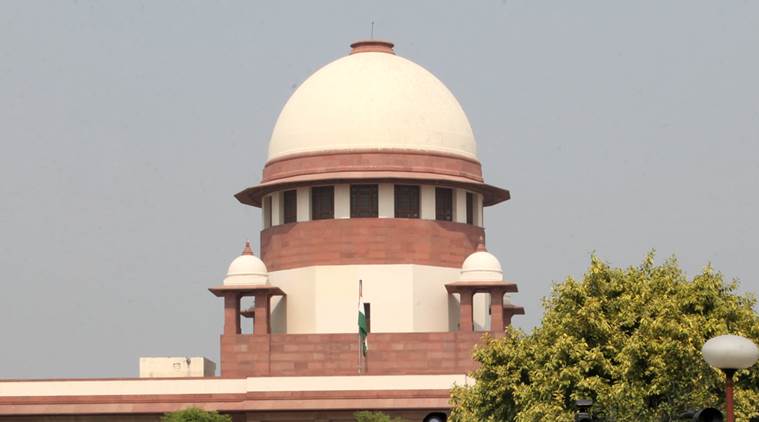Stay updated with the latest - Click here to follow us on Instagram
India’s ‘magnanimity and generosity’ cannot be taken for granted, says Supreme Court
The apex court said that everyone must show reverence to the laws here.
 An SC bench said that foreign nationals are welcomed by this country “with arms wide open” but there was no way they could disrespect the laws and still be treated with the same generosity. (Express Photo)
An SC bench said that foreign nationals are welcomed by this country “with arms wide open” but there was no way they could disrespect the laws and still be treated with the same generosity. (Express Photo)
Deploring the fact that foreign countries have refused to hand over criminals facing serious charges in India, the Supreme Court Friday asserted that the country’s “magnanimity and generosity” should not be taken for granted by the world and that everyone must show reverence to the laws here. A bench led by Chief Justice of India J S Khehar said that foreign nationals are welcomed by this country “with arms wide open” but there was no way they could disrespect the laws and still be treated with the same generosity.
Watch What Else Is Making News
“Our magnanimity and generosity cannot be taken for granted. On one hand, we have always welcomed people from outside with open arms but look at how have we been treated. Here is our country which has been asking other countries to hand over criminals and they don’t. So why should we keep showing the same generosity to others when they don’t respect our laws?” said the bench, also comprising Justice D Y Chandrachud.
The court was hearing a petition by Amir Ahmed Khmes and his brother, both Sudanese nationals, who were allowed by the Indian government to study in a college at Bengaluru after they sought refugee status. The two reportedly had to flee Sudan after their family members were killed in the internal strife there. While their applications for refugee status was pending before the United Nations High Commissioner for Refugees (UNHCR), the Indian government granted them the visa to study here.
However, the brothers left Bengaluru without informing the authorities and came to Delhi. One of them even went to Sudan for three months and came back — all in breach of undertakings they had given to the Ministry of External Affairs.
Subsequently, the duo was lodged at a detention centre in the national capital for deportation back to Sudan.
Senior lawyer Colin Gonsalves, representing the brothers, sought a “humane approach” from the apex court, and said if he had an opportunity to meet the foreign nationals, he could perhaps tell the court why they did what they did. Apprehending that they would be killed if sent back to Sudan, Gonsalves pleaded for the Constitutional guarantee of right to life in India to be extended to them as a gesture of goodwill.
The bench appreciated Gonsalves’ arguments as a pro bono counsel but reminded him that this country had already been too generous to Khmes and his brothers but they showed defiance. “There have been breaches after breaches. You (Gonsalves) just close your eyes and imagine what would happen to them if they were in the US and violating all laws there. The world has not been simple and they have violates our laws repeatedly,” it responded.
The bench pointed out that the two left their studies midway and came to Delhi without bothering to inform any authority. “Why should you argue for showing generosity to them when they don’t respect our laws? They will go straight to jail for all these infractions. We let them study in an institution of their choice but they leave study. They are not even at the place where they undertook to remain. What are we expected to do for them?” the bench asked.
Gonsalves urged the bench to give him one opportunity to meet the foreign nationals before the final call could be taken. To this, the bench stayed their deportation for a week and asked Additional Solicitor General Maninder Singh to help set up the meeting the Sudanese nationals. The court also asked the ASG to verify and adduce the correct factual position regarding the matter, which will now be heard on January 20.







